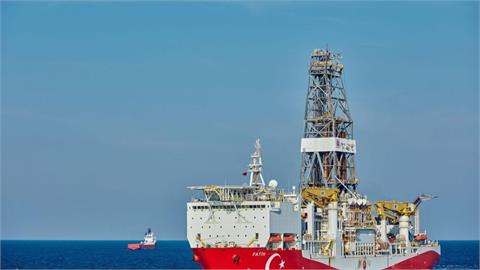Despite the outcome of the hard political negotiations to form a coalition government following the re-election of Germany’s Angela Merkel to a fourth-term in power, Berlin’s policy towards the construction of the Nord Stream-2 gas pipeline from Russia to Germany will most likely remain the same.
"I think that irrespectively of what shape its next government will take – for example, Jamaica, new ‘grand’ coalition, new elections – Germany’s attitude towards Nord Stream-2 would continue to be just as it has always been i.e. the project will going ahead as long as it conforms to the existing law, as the project is in German interest – and also in overall Europe’s interest,” Katja Yafimava, a senior research fellow at the Oxford Institute for Energy Studies, told New Europe on September 28.
Yafimava noted that if it were to be a so-called Jamaica coalition of Merkel’s Christian Democrats with Germany’s Free Democrats (FDP) and Greens, the pro-business FDP might view it favourably as the project would bring competitively priced gas to Germany which is good for business and consumers, and would also provide a concrete example of positive cooperation between Germany and Russia, especially should the latest Russian proposal with possible modifications for United Nations peacekeepers mandate in eastern Ukraine be adopted and contribute towards the implementation of Minsk 2.
"The Greens might not view it negatively too: with business as usual Germany is most likely to miss its 2020 emissions reductions targets whereas additional gas brought via Nord Stream-2 would enable Germany to meet its CO2 emissions reductions targets post 2020, which would be an improvement from the environmental perspective and should be seen as positive by the Greens, Yafimava said, adding that the CDU as headed by Merkel is likely to maintain the same approach as it had its coalition with SPD. "In short, Nord Stream-2 is unlikely to be a real red line for any possible coalition partner,” the Oxford Institute for Energy Studies expert said.
She argued that Nord Stream-2 would really be mostly to compensate for decline in domestic northwest European production and will mostly serve Northwest European markets and Italy. It may serve some of Central Europe and South Europe countries but nowhere near at the two-third level of its capacity, Yafimava said.
Meanwhile, energy expert Peter Poptchev, who has served as ambassador-at-large for energy security at the Bulgarian Ministry of Foreign Affairs, told New Europe in Sofia on September 28 that Merkel would probably have to make a number of concessions but "her energy policy has essentially been of a character and a substance that both the Greens and the Free Democrats, and indeed others, should be able to support”.
"I have in mind Germany’s Energy Transition, which angered many household consumers, but proved right from the point of view of the long-term national strategic interests in general and those of the large energy companies of Germany in particular – in renewables, both solar and wind, energy efficiency, and gas,” Poptchev said, referring to Germany’s Energiewende.
"Natural gas and in particular renewables will be the two main drivers of energy growth in both Europe and beyond, and these are areas in which Germany, Europe’s biggest market, has got it right,” he said.
"As to Nord Stream-2, Germany will prefer to become the most important transit and distribution centre of Russian gas in Europe, with a view to keep the Union together and link up its booming industry with that of other EU Members and energy, in particular gas, plays a big role in this, Poptchev said. He added, however, that Germany would have to coordinate this with France, Italy, the Netherlands, Spain, the Czech Republic, perhaps even Poland and other Central and Southeast Europe countries "if it hopes to lead a rebirth of the EU”.
by Kostis Geropoulos, Energy & Russian Affairs Editor, New Europe
https://www.neweurope.eu/article/merkels-new-coalition-likely-wont-sideline-nord-stream-2/



